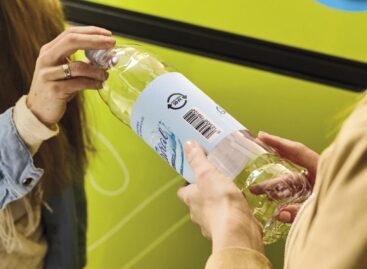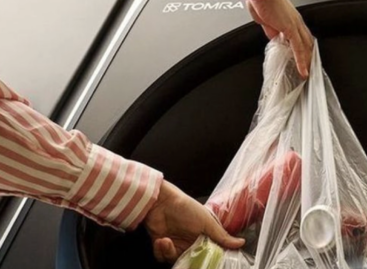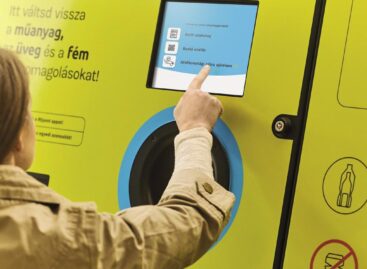EM: Further Development of the Deposit Return System Continues
Thanks to the Deposit Return System (DRS) introduced at the beginning of last year, by summer 2025 Hungary has seen a significant increase in the proportion of returned beverage containers. In several months this year, the return rate has exceeded 90%, which not only benefits the environment but also allows for the efficient recycling of valuable raw materials. According to the Ministry of Energy (EM), the system could become even more effective and convenient in the future, as the concession company responsible for waste management will be able to reinvest unclaimed deposit fees from non-returned bottles into further system development.
 The government remains committed to environmental protection and sustainable management. In recent years, it has taken significant steps to improve waste management, resulting in more than a twofold increase in the proportion of recycled waste in Hungary.
The government remains committed to environmental protection and sustainable management. In recent years, it has taken significant steps to improve waste management, resulting in more than a twofold increase in the proportion of recycled waste in Hungary.
To accelerate the transition to a circular economy, a nationwide concession-based waste management system has been in place since July 2023. Additionally, under the extended producer responsibility scheme and the mandatory DRS, producers are responsible for the proper handling of waste generated from their products and for covering the operational costs of the system.
Since 2024, grocery stores with a sales area larger than 400 square meters have been required to accept empty beverage bottles and cans bearing the DRS symbol through automated return machines.
Currently, over 3,200 return locations are equipped with machines, and about 1,700 manual return points are available—mainly in smaller stores—giving consumers more than 4,900 places to return beverage containers nationwide.
Today, between 8 and 10 million bottles are returned daily across the country, and on some days this number has reached a record 15 million. Since the system’s launch, more than two billion PET bottles, metal cans, and glass bottles have been returned via the MOHU REpont system. The return rate already shows a significant upward trend, with the 90% figure considered an outstanding result even by EU standards.
A draft regulation submitted by the Ministry of Energy for public consultation clarifies the rules on how revenues generated from the DRS system should be used. It stipulates that any surplus deposit fees retained by MOHU must be allocated to DRS-related activities, such as waste collection and pre-treatment, thereby ensuring the sustainable operation of the system.
The expansion of return points and the installation of additional machines contribute to further increasing return rates and making the process even more convenient for the public, the ministry added.
Related news
Related news
Nestlé to sell remaining ice-cream assets but commits to Froneri venture
🎧 Hallgasd a cikket: Lejátszás Szünet Folytatás Leállítás Nyelv: Auto…
Read more >Lidl guarantees fairer prices for cocoa farmers
🎧 Hallgasd a cikket: Lejátszás Szünet Folytatás Leállítás Nyelv: Auto…
Read more >









